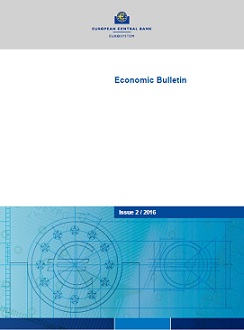Rubio, Eulalia, Rinaldi, David , Pellerin-Carlin, Thomas,(2016), “Investment in Europe: making the best of the Juncker Plan”, Jacques Delors Institute Studies&Reports, March This report, written by Eulalia Rubio, David Rinaldi and Thomas Pellerin-Carlin, respectively senior research fellow ans research fellows at the Jacques Delors Institute and foreworded by Enrico Letta, vice-president of the Jacques Delors Institute, analyses the strengths and weaknesses of the Juncker Plan. Based on the Plan’s preliminary results, experts’ opinions, …Read More
Neo-Functionalism as a Theory of Disintegration
Schmitter, Philippe C., Lefkofridi, Zoe, (2016), “Neo-Functionalism as a Theory of Disintegration”, Chinese Political Science Review (2016) 1:1–29, March In this article, we exploit neo-functionalism as a conceptual and theoretical instrument that helps understand the current crisis and its future consequences. We formulate a series of suppositions and hypotheses, which we evaluate using existing data sources and related research. Our empirical analysis produces a mixed picture: though reality seems to conform with some …Read More
Eurozone crisis and social models: what we can learn from italy and spain
Perez, Sofia, (2014), “Eurozone crisis and social models: what we can learn from Italy and Spain”, Minda de Ginzburg Center for European Studies, Harvard University, Open Forum Working Papers #20, This paper considers the role of social model features in the economic performance of Italy and Spain during the run-up to the Eurozone crisis, as well as the consequences of that crisis, in turn, for the two countries social models. It …Read More
Firms and Labor Market Inequality: Evidence and Some Theory
Card, David , Cardoso, Ana Rute, Heining, Joerg, Kline, Patrick, (2016), “Firms and Labor Market Inequality: Evidence and Some Theory”, IZA Discussion Paper No. 9850, March 2016 We review the literature on firm-level drivers of labor market inequality. There is strong evidence from a variety of fields that standard measures of productivity – like output per worker or total factor productivity – vary substantially across firms, even within narrowlydefined industries. Several recent studies …Read More
Two views of the EZ Crisis: Government failure vs market failure
Bofinger, Peter, (2016), “Two views of the EZ Crisis: Government failure vs market failure”, Voxeu, 08 April Diagnosing the EZ Crisis is a critical first step towards developing a consensus on how the monetary union should be fixed. This column contrasts views that place the blame mostly on markets with those that place the onus on governments. The fixes necessary for the survival of the euro are – correspondingly – more ‘market discipline’ …Read More
Free Movement of Persons: The Mirage of Social Security Schemes
Nedelescu, Roxanna, (2016), “Free Movement of Persons: The Mirage of Social Security Schemes”, Bruges European Economic Research Papers 34/2015 The purpose of this paper is to address the issue of social security benefits that jobseekers, nationals of other Member State, residing in another Member States are in title to, as well as the economic implications of free movement of persons and labour market access. Consequently, it aims to disentangle between labour …Read More
Providing political leadership? : three case studies on Germany’s ambiguous role in the eurozone crisis
Schoeller, Magnus G., (2016), “Providing political leadership? : three case studies on Germany’s ambiguous role in the eurozone crisis”, Journal of European public policy, Throughout the eurozone crisis, observers called upon Germany to assume leadership. Yet, Germany has not emerged as the hoped-for leader. According to the issue at stake, we observe three different outcomes: firstly, Germany refused to lead; secondly, Germany assumed leadership, but failed to deliver; thirdly, Germany …Read More
The structural budget balance limbo
Darvas, Zsolt, (2016), “The structural budget balance limbo”, Bruegel, 7 April Revision of an estimate when new data becomes available is quite natural. Also, in some years the methodologies used to estimate potential output and the structural balance were revised. It is better to revise an initial estimate when it turns out later that it was incorrect than to continue using an incorrect estimate. But the problem is that the EU …Read More
Economic Bulletin
European Central Bank, (2016), “Economic Bulletin”, Issue 2/2016, 24 March At its monetary policy meeting on 10 March 2016, based on the regular economic and monetary analyses, the Governing Council conducted a thorough review of the monetary policy stance, in which it also took into account the new macroeconomic projections by ECB staff extending into the year 2018. As a result, the Governing Council decided on a set of measures …Read More
The European Union’s growing innovation divide
Veugelers, Reinhilde, (2016), “The European Union’s growing innovation divide”, Bruegel, 7 April There is a significant divide between the European Union countries with the greatest capacity to innovate, and those with the least capacity to innovate. The difficult convergence process has been proceeding only very slowly and unevenly, and more recently seems to have come to a halt. A particular weak spot for the EU is corporate investment in research; in this …Read More





